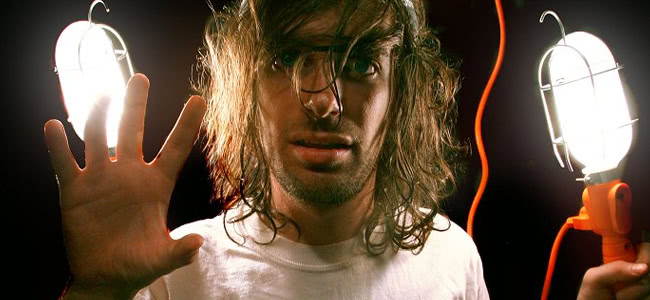Girl Talk has long been the ‘Most Wanted’ poster boy of illegal sampling in the eyes of record labels wanting to pin the mash-up maestro for gaining immense popularity off the back of their catalogues.
While the popular music splicer has managed to elude the sting of copyright claims, repeatedly citing his work falls under the ‘fair use’ defence of copyright exemption, Girl Talk has still had to tread carefully – making money from merch, touring (last in Australia for the 2012 Big Day Out) and promotion rather than much direct profit from his dizzying musical creations.
However, an extensive new investigation into digital sampling could turn the oppressive tide, with the same labels shaking their fist and blaming Girl Talk for eating into their profits likely to instead thank him and shaking his hand. Why? Because according to new research, being sampled by the mash-up master can actually increase sales rather than hinder them.
Conducted by Texas Judicial Law Clerk W. Michael Schuster, the study looked at the more than 350 popular songs sampled on Girl Talk’s 2010 album All Day, and found that the copyrighted music used to construct the party mixtape sold much better in the year after All Day‘s release than in the year before, as Pitchfork reports.
The 74-page report (available in full here for you heavy readers) indicates that Gregg Gillis, the man behind the Girl Talk stage name, stimulates sales directly through the use and exposure of the music through his own unique configurations. Schuster suggesting his figures argue for an “objective financial review of fair use and the market effect.”
Based on the increase of song sales after the release of All Day, Schuster concludes: “To the extent that the Copyright Act instructs courts to analyze (among other considerations) the effect that an alleged fair use has on the potential market for the original work, these findings favor the conclusion that digital sampling is a fair use.”
The Girl Talk study also looked at how the length of the sample, along with the song’s previous popularity, affected sales:
Love Music?
Get your daily dose of metal, rock, indie, pop, and everything else in between.
The songs sampled in the subject album were evaluated to ascertain the length of each sample and to what degree each sampled song had experienced prior commercial success. This collected data was used to test the hypothesis that sampled songs which were more recognizable to listeners (e.g., songs that were commercial hits or songs that were sampled for a relatively longer period) would see a greater sales increase after being sampled.”
So while Girl Talk was regularly seen as public enemy #1 for copyright infringement, the Texan law clerk’s report says the positive commercial affects of Gillis’ music should demonstrate to courts that a loosening of copyright laws would have a more positive effect, while current strict regulations have “no accepted rule on how to treat a market benefit,” such as the one evidenced in the All Day report.
Adding that: “The failure to address this issue is questionable because a market benefit actually furthers the utilitarian goal of copyright by incentivizing the creation of new works through economic gain. The current research makes clear the need for precedent on how the fair use analysis should treat actions (e.g., digital sampling) that may increase sales of the original work.”
The research certainly puts Girl Talk in good stead for his latest release, tentatively scheduled for a release through the Illegal Art label before the end of the year, telling MTV News at the start of the year that his latest mash-up masterpiece would be inspired by ‘traditional production.
Revisit Girl Talk’s All Day in full below.

































